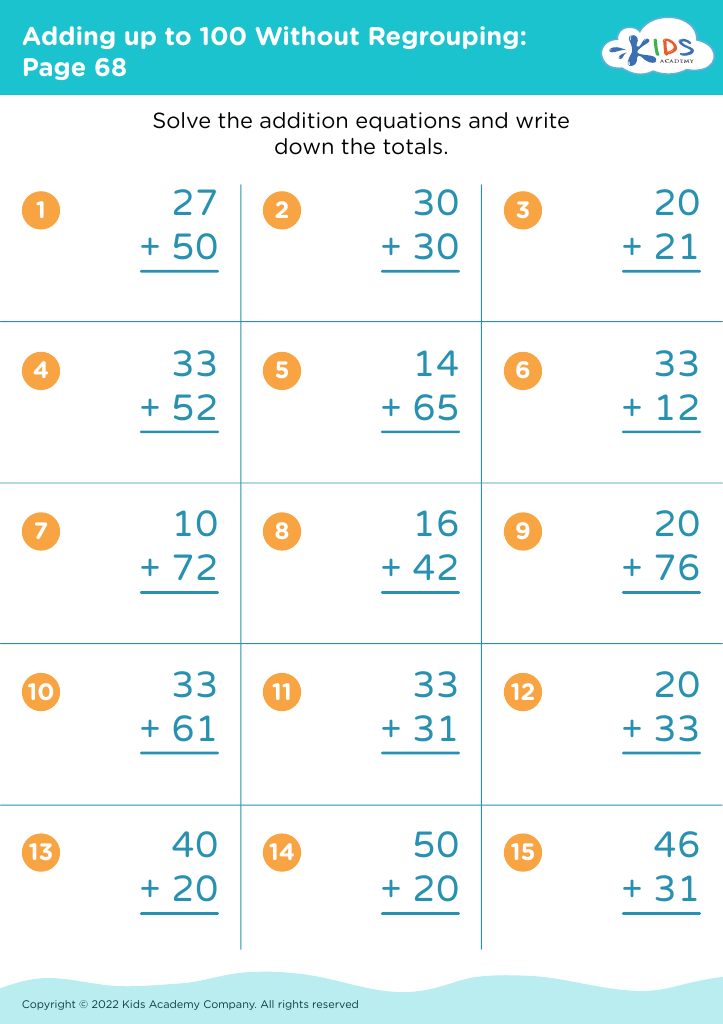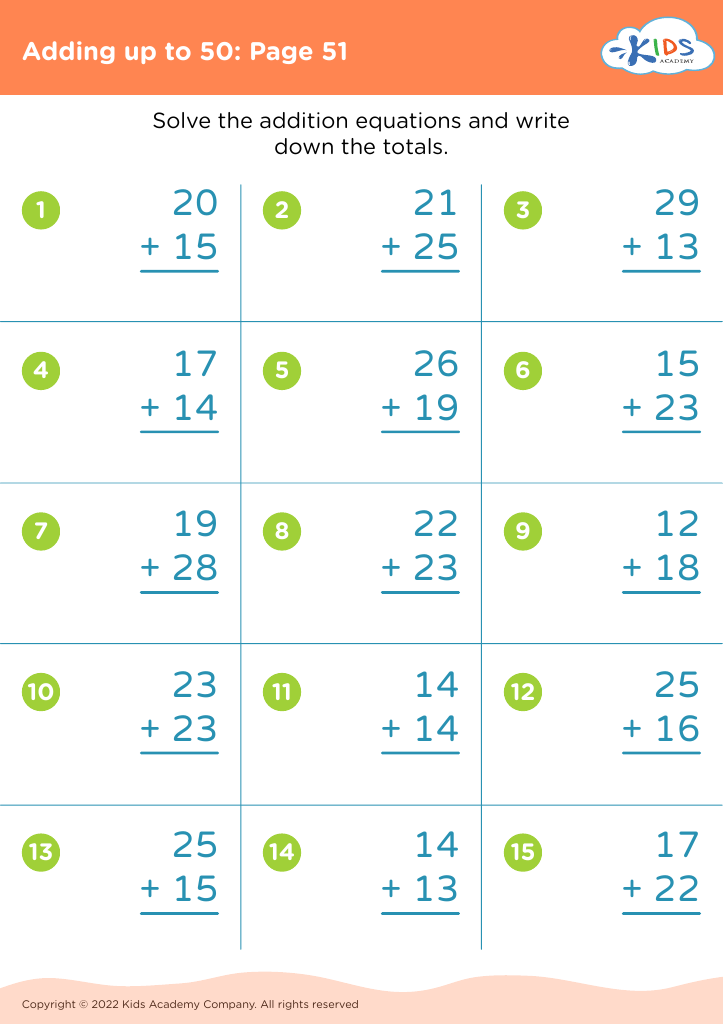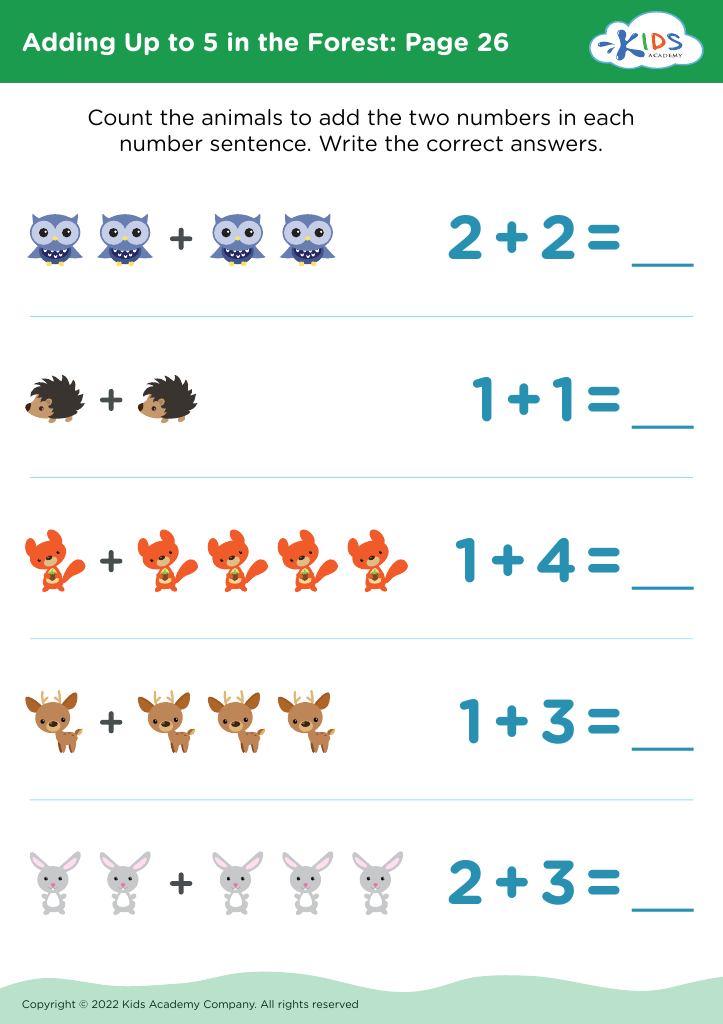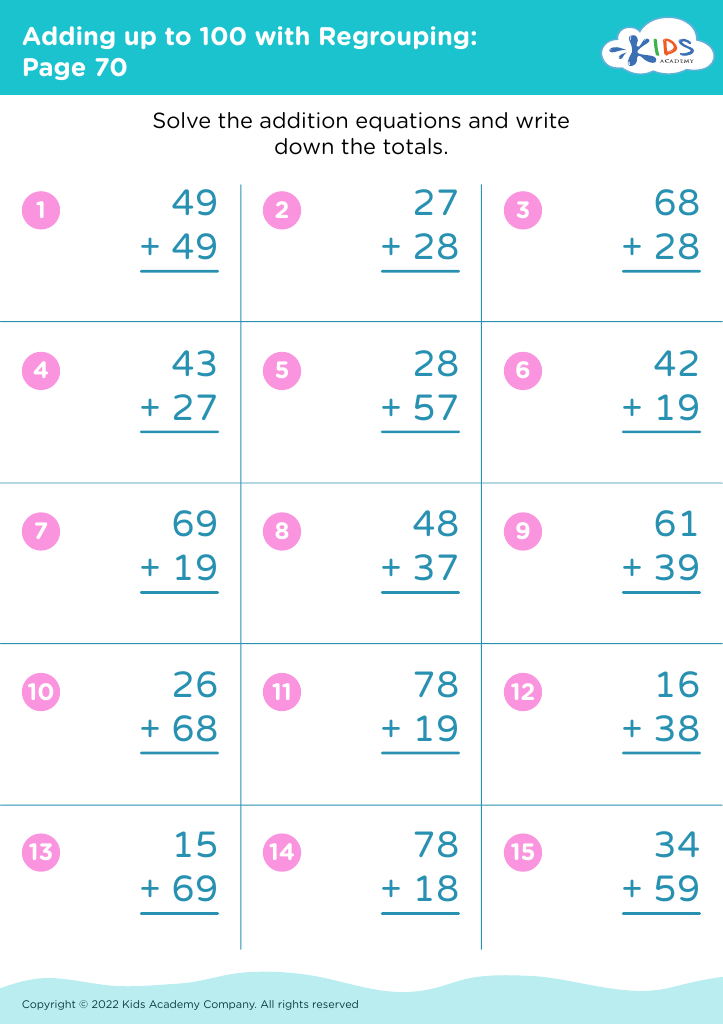Developing problem-solving skills Math Worksheets for Ages 4-8
10 filtered results
-
From - To
Enhance your child's critical thinking with our "Developing Problem-Solving Skills Math Worksheets" designed specifically for ages 4-8. These engaging, printable worksheets introduce young learners to essential problem-solving techniques through fun exercises that encourage logical reasoning and creativity. From puzzles to real-world scenarios, each activity is tailored to strengthen analytical skills while making math enjoyable. Ideal for classroom use or at-home learning, our worksheets support early math education by helping children grasp foundational concepts. Equip your child for academic success and a lifelong love for learning with our captivating math resources today! Explore our assortment and watch them thrive!
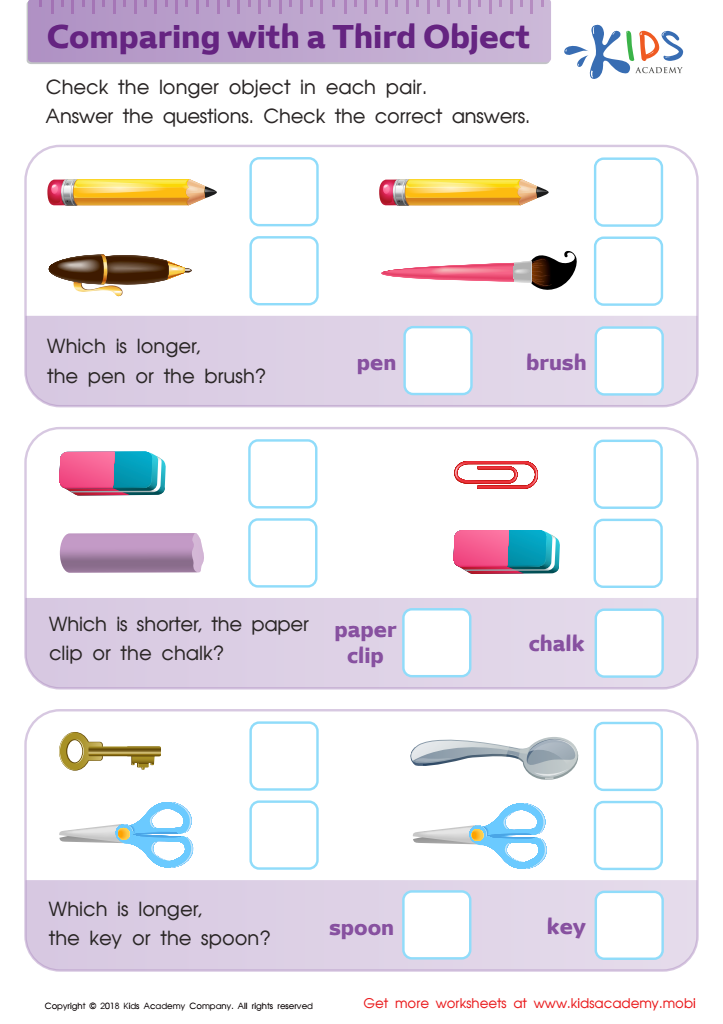

Comparing with a Third Object Worksheet
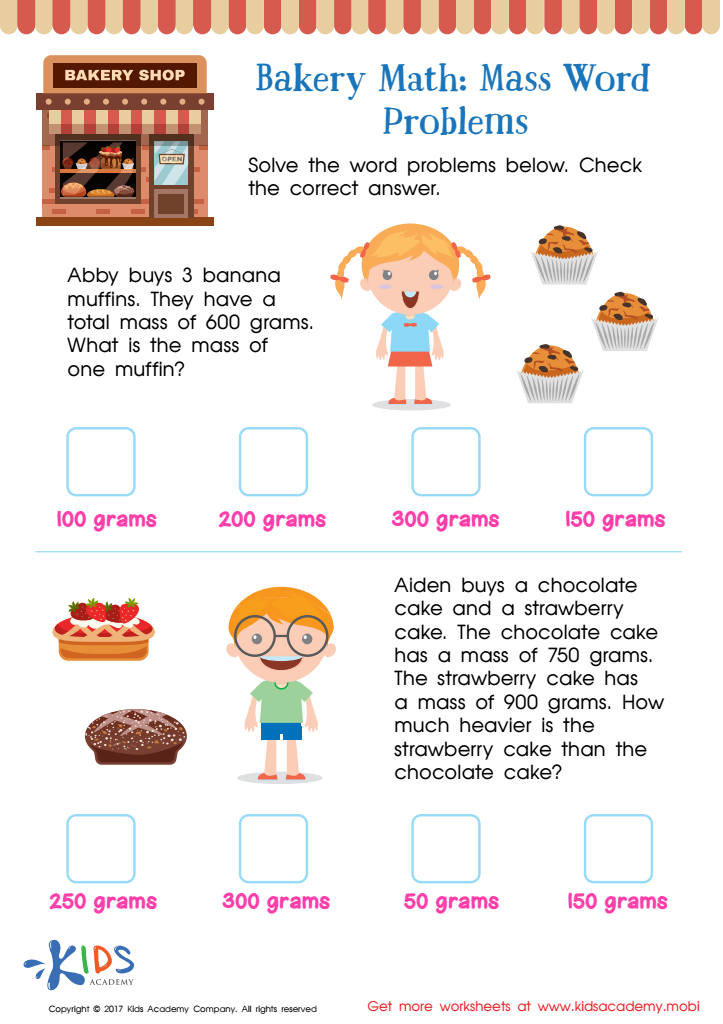

Mass Word Problems Worksheet
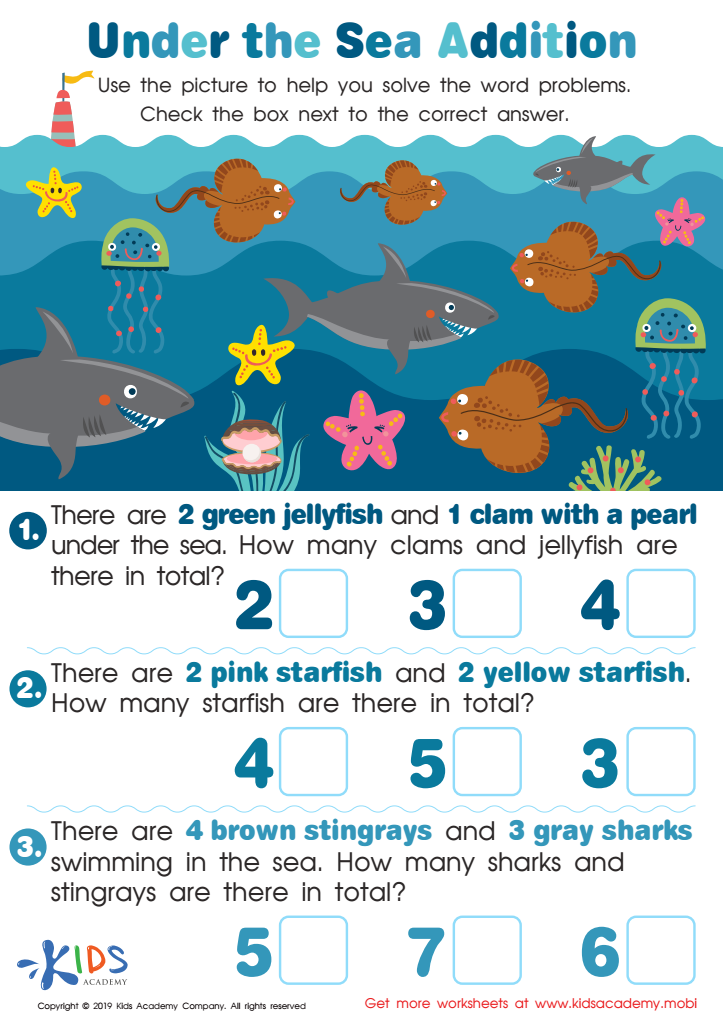

Under the Sea Addition Worksheet
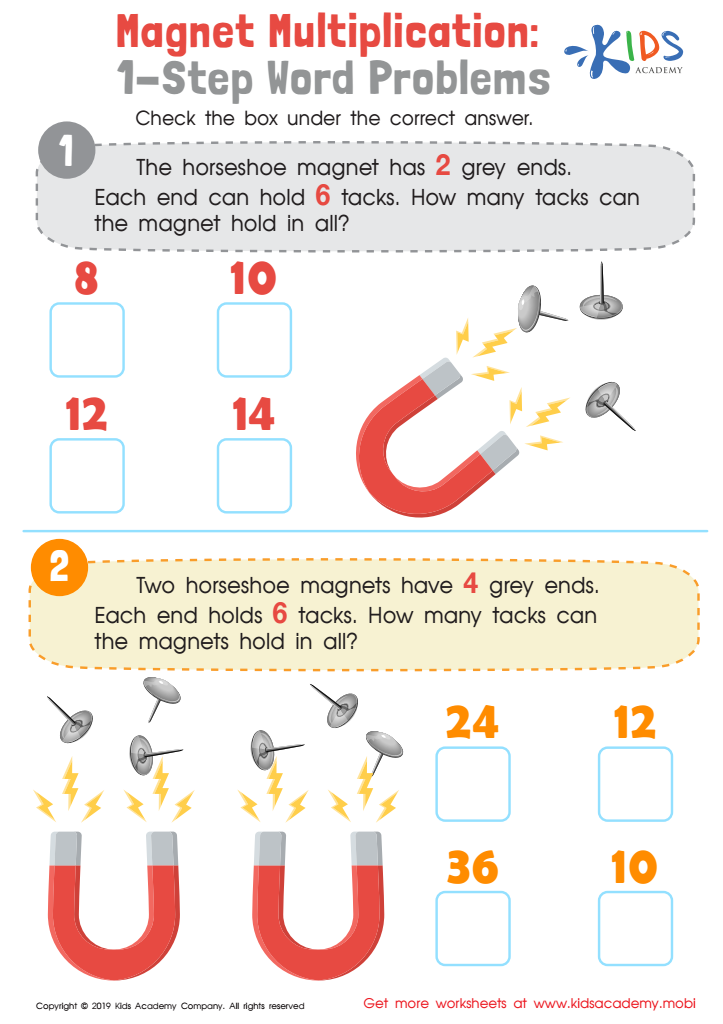

Magnet Multiplication: 1-Step Word Problems Worksheet
Developing problem-solving skills in math for children ages 4-8 is crucial for their cognitive and social development. Early childhood is a critical period for cognitive growth, with children forming foundational understanding that shapes their future learning. Engaging young learners in problem-solving allows them to build critical thinking skills, learn to approach challenges with resilience, and discover strategies for overcoming obstacles.
As children reason through problems, they enhance their ability to analyze situations, identify patterns, and think creatively. These skills extend beyond math and are applicable to everyday scenarios, from making decisions to navigating social interactions. Additionally, developing problem-solving skills fosters a positive attitude towards learning. Children who successfully tackle mathematical challenges build confidence and a sense of achievement, encouraging a lifelong passion for inquiry and exploration.
Teachers and parents play a vital role in this process by creating supportive learning environments and providing opportunities for hands-on manipulation of concepts. By emphasizing problem-solving in math, adults can cultivate not only independent thinkers but also collaborative team members who can tackle real-world problems effectively. Ultimately, fostering these skills gives children the tools necessary to succeed academically and socially throughout their education and beyond.
 Assign to My Students
Assign to My Students
